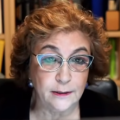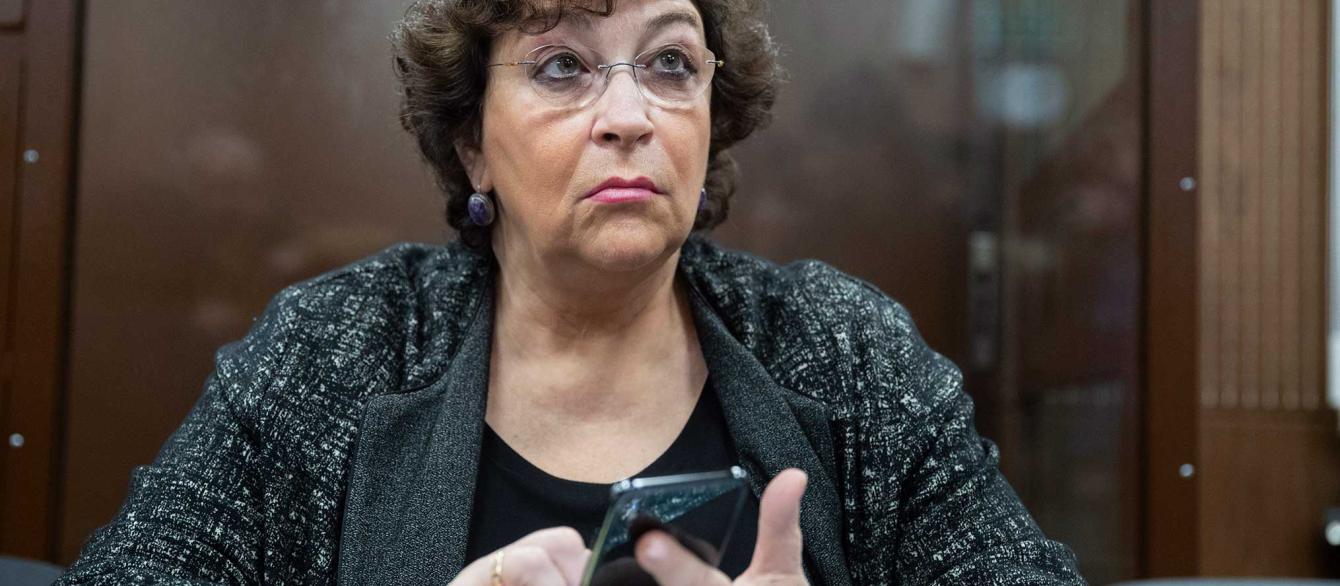Vladimir Putin invaded Ukraine at 4 a.m. on Thursday, February 24. I did not catch the moment. I was in the hospital, a week after a total knee replacement surgery, still in pain and on sleeping pills.
My surgeon, himself half Ukraine, walked into my room: “The war has begun,” he said and sobbed. “My friends, my relatives—what will happen to them …”
I felt sorry for him, but my brain was rolling crazy: Did my news people catch the news? Who should I ask to write an analysis right away?
‘Ministry of Truth’
I was terrified by the news but not surprised. I was aware that Putin was to start a war sooner or later. I think it became pretty apparent after he amended the Russian Constitution in the spring of 2020, making himself president for life.
An external enemy, a threat capable of uniting the nation under the well-known Soviet wartime slogan “Fatherland is in danger!” was in his sick mind a precondition for a successful transfer of his presidency into dictatorship, or even a monarchy with divine origin and powers—the validity of which no one was to question or to challenge.
My New Times was running the news, the op-eds came even when I was still asleep, and I went on air live with events and analysis on my YouTube channel right from my hospital ward.
I asked to be released home the next day.
On February 26, I got a letter from the Russian agency in charge of censorship. It officially is the Federal Service for Supervision in the Field of Communications, but we call it the Ministry of Truth. The letter said that New Times’ stories (as well as those by nine other outlets) about the “shelling of Ukrainian cities and the death of civilians” were “untrue information.”
In fact, according to the agency, use of the words “war,” “invasion” and “offense” concerning events in Ukraine were out of the question. The bombardment of Ukrainian cities with missiles must be called a “special operation.”
On Feb. 28, the New Times site was blocked on the territory of the Russian Federation. OK, we said, our readers inside the country are to use the VPN (virtual private network), which allows pretending that your phone or laptop is located in, say, Sweden or the United States. We were facing charges, fines and a court hearing. But all that was part of being an independent media in an authoritarian country. I was not concerned.
My father’s safe house
A much more terrifying thought was that my nation, Russia, where I was born and of which I am a citizen, had started a war of conquest.
At 8 p.m. that day, I had my regular talk show at freewheeling Echo Moskvy broadcasting, as I had each Monday for 19 consecutive years. A reporter working in the Ukrainian capital of Kyiv, a military expert and a political scientist were scheduled to be my guests.
I started with a story about the southern Ukrainian city of Nikolaev (Mykolaiv), which was already under the offense of the Russian troops. Video footage from Nikolaev suggested heavy shelling; vehicles were on fire, glass in apartment building windows was broken, sidewalks were riddled with bullets.
I knew the city. I was there a couple of years ago because of my father’s story. Mark Albats parachuted into the territory of Nazi-occupied Ukraine in September 1941. His safe house, where he kept a radio transmitter, was on 14 Pushkinskaya Street in Nikolaev. I immediately recognized the city and the street when I saw the footage.
My dad fought the Nazis to defend his motherland, Russia, then part of the USSR. Thanks to G-d, my father is long gone to a better world, and he did not get to see that now Russia is attacking Ukraine and making ruins out of Nikolaev as Nazis did eight decades ago during World War II.
Smothered free press, in just a week
The show went well. I did not know it was my last show. Three days later, on March 3, Echo Moskvy was taken off the air. The next day, just last Friday, the only independent TV channel, Dozd (TV Rain), at which I was a frequent political commentator, was also shut down.
Well, I told myself, the situation was not lovely, but after all, I lived in the totalitarian Soviet Union. I was a student at Moscow University’s Department of Journalism when the Soviet army invaded Afghanistan. Things went from bad to worse for those not loyal to the communist party and the KGB.
I survived then. Sure enough, I will survive now, as YouTube is running, my channel is getting an audience and Google is placing ads.
Little did I know.
On Friday, Russian State Duma passed three new repressive laws. Any information about the war in Ukraine that does not fit the narrative of the Russian Ministry of Defense is to be considered fake news and punishable for up to 15 years in jail.
It prompted whatever nonstate media left to shut down their websites or publicly announce that their news department is closed from now on. It is to say that they will not cover the war in Ukraine anymore. In a matter of a single week, independent media ceased to exist in Russia.
Hundreds if not thousands of professionals left Russia—the best editors, reporters, filmmakers, analysts, professors of economy and political science. Business people with cash handy flew to Dubai and United Arab Emirates. Those with modest means choose Central Asia.
My young reporter wrote to me that she was “urgently getting married” because she did not want to be alone in exile. She did not have enough savings for a ticket to Yerevan, the capital of Armenia. So she ended up looking for one to Uzbekistan. I hope she will get there in one piece with her loved one.
As for me, I am planning to do a show on my YouTube channel.
Several days ago, I was awakened at 3 a.m. by a friend: “Be ready, they (i.e., police or FSB) will come to arrest you around 6-7 a.m.”
I took a shower, got dressed, put a new bandage on my knee, packed a bag with essentials and went back to sleep.
They did not come. But I keep the bag by the door.
Polls in dictatorships
You may ask—as I ask myself: Why did Putin and his supporters decide to kill all independent media in Russia? After all, we were just leftovers—a small liberal ghetto amid the rich and powerful state media, which control every TV network capable of covering the country of 11 time zones.
If you read the polls conducted by the two state-owned pollsters, their numbers suggest that Putin and his war have the support of two-thirds of those polled. Yet, polls in dictatorships bear no value—people are afraid to say what they really think.
Are there people who support the war? Oh yes, one can see cars with the letter Z chosen as a recognition sign for the Russian military vehicles in Ukraine drawn on the side doors of the expensive SUVs driving through Moscow.
Yet, it is also true that more than 13,500 predominantly young people got arrested, and face 15 to 30 days in jail, for anti-war protests, which erupt daily in many cities across Russia.
After the first days of the war, the Kremlin realized that independent news coverage attracted millions of Russians looking for information beyond the propaganda machine. In 2008, during a short war against Georgia, the Kremlin lost an information war to the liberal Russian media.
This time, Putin chose not to take chances. He signed a death order for the media that had the courage to tell the truth of the war of his making.
All that is left are his Kremlin media—TV channels and radio stations.
This year, like all the years before, on the anniversary of the start of World War II in the Soviet Union, they’ll broadcast one of the most famous songs of the war, which begins:
“On June 22nd, at exactly four o'clock, Kyiv was bombed,
We were told that the war had begun.”
As I write those words, Kyiv is under siege by Russian troops.
This piece originally appeared in USA TODAY on March 8, 2022.






